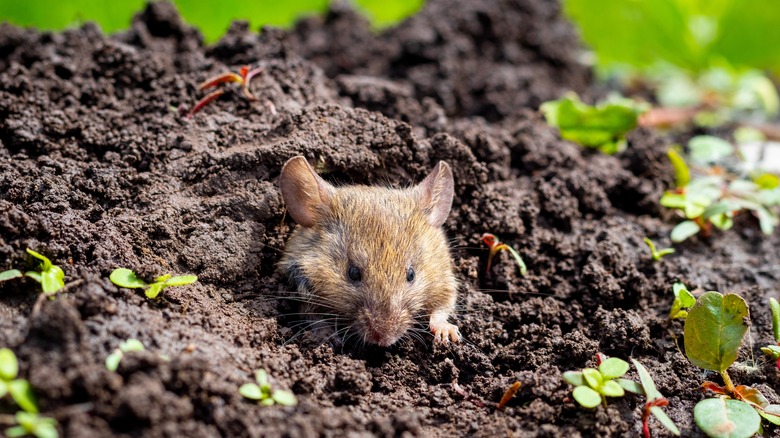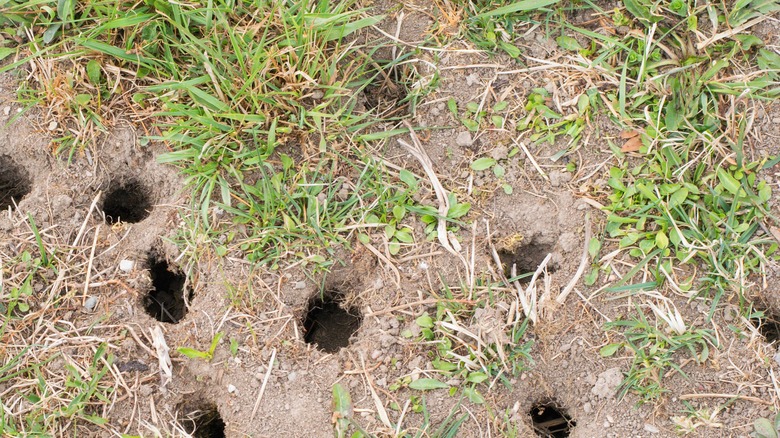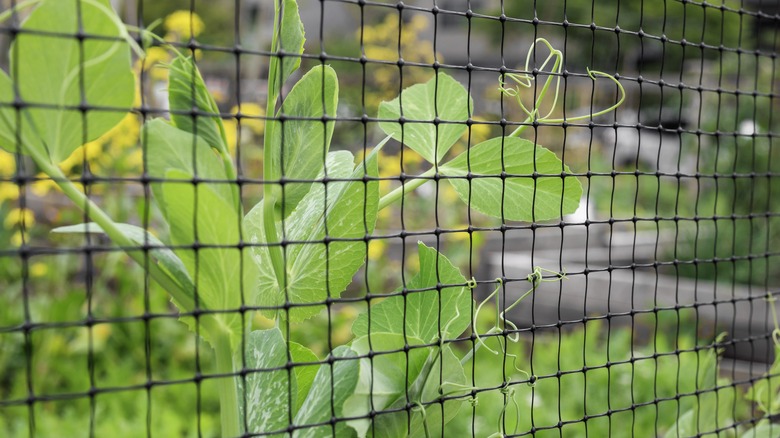What To Do When You Find Rodents In Your Soil
As you ready your garden for spring and clean out the flowerbeds, you likely spend a bit of time considering insects. While worms could be good things, you certainly don't want beetles or other insects to damage the fragile foliage of your plants. What about rodents, though? Many people don't plan for these pesky critters to appear in their gardens, but they can be a common and had-to-treat nuisance in some areas.
If you see the signs of rodents in your garden, including laying eyes on them, or your seedlings seem to disappear overnight, you could have mice, gophers, moles, or groundhog visitors. You may also find underground tunnels in some areas or mounds of dirt in others, which typically sit at the burrow's entrance. Other times, you'll see droppings. If this sounds like your yard, find out what's there and how bad the infestation is before you determine the best removal strategy. Unfortunately, getting rid of rodents in your soil isn't always easy, especially if the infestation is severe.
Get rid of where they're living
While you could try to catch and release rodents, a few other steps could be just as effective. First, start by finding where they're living. This could be in compost piles, in or around bird feeders, behind wood piles, or in the trash cans on the side of the house. Once you figure out where they are, get rid of their home. That's going to help make it more difficult for them to remain close to your garden. Next, remove any wood and brush piles, keep tall grass cut down short, and spray down compost mounds with a hose to make the space less desirable. Also, don't make the common mulching mistake of adding too much material in your flowerbeds, as this can create an excellent habitat for critters to call home.
Then, get rid of whatever they're eating when possible. That may mean removing birdfeeders for a while and moving trash to a secured location with the lid on tight. Also, work to treat lawn grubs, a popular food source for moles, groundhogs, and other pests. Applying milky spore or other lawn treatment products will make these food sources less desirable.
Secure your garden area
When dealing with larger rodents digging through your garden, the work is a bit more challenging. You can start with the steps above, but if they are there for your plants, you'll need to be more aggressive in keeping them out. A good starting point is to seal all points of entry. That may mean you need to use a fence with tiny openings. A stout fence is ideal because it should keep all pests out. You can take this one step further by using hardware cloth along the edge of the fence. That makes it even more challenging to get through. However, you'll need to dig down under the fence line and position the cloth about 18 inches under the top of the soil to help prevent diggers from burrowing into the garden.
If all else fails, there are more advanced solutions to try out. For example, you can find rodent-repelling devices that work to keep them away. You may also have to alter the solutions you employ throughout the year as rodents learn to overcome them, such as when they realize the repelling devices don't really hurt them. Unfortunately, if the garden is overrun with rodents, you may need a professional exterminator to help you set up traps to catch them.


